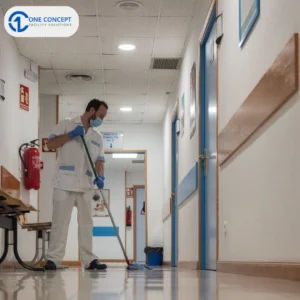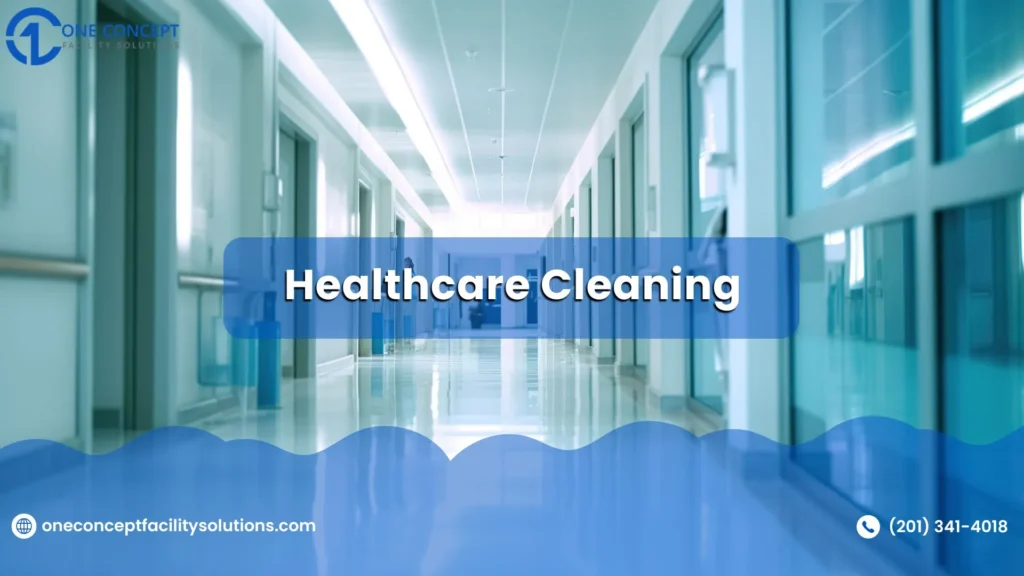In today’s healthcare environment, maintaining a clean and safe facility is more critical than ever. With the increasing focus on patient safety and infection control, healthcare cleaning solutions have become essential. Professional cleaning services not only enhance the hygiene of medical environments but also ensure compliance with stringent health regulations. This article explores the vital aspects of healthcare cleaning, emphasizing its importance in safeguarding patient health and improving overall facility standards.
Understanding Healthcare Cleaning Services
Healthcare cleaning services play a crucial role in maintaining hygiene and safety within medical environments. These specialized services are designed to address the unique challenges of cleaning in healthcare settings, ensuring that all areas, from patient rooms to operating theatres, are thoroughly sanitized. By employing trained professionals who understand the complexities of healthcare sanitation, facilities can significantly reduce the risk of infections and create a safer environment for patients and staff alike.
The Importance of Infection Control in Healthcare
Effective cleaning practices are paramount in preventing the spread of infections within healthcare facilities. Regular and thorough cleaning helps eliminate harmful pathogens that can lead to healthcare-associated infections (HAIs). By implementing stringent cleaning protocols, healthcare providers can protect patient health, enhance recovery rates, and reduce the overall burden on healthcare systems. Infection control is not just a regulatory requirement; it is a fundamental aspect of patient care.
Key Benefits of Professional Healthcare Cleaning
Hiring professional healthcare cleaning services provides several significant advantages that enhance the overall quality of care in medical facilities. These services not only ensure compliance with health regulations but also contribute to patient satisfaction and the facility’s reputation. Below are the key benefits outlined in detail:
Compliance with Health Regulations
Professional cleaning services help healthcare facilities adhere to stringent health regulations. This compliance is essential for maintaining operational licenses and avoiding penalties. By following established cleaning protocols, facilities can ensure they meet the standards set by regulatory bodies, thus safeguarding their reputation and operational integrity.
Enhanced Patient Satisfaction
A clean and well-maintained environment significantly boosts patient satisfaction. When patients enter a spotless facility, they feel more comfortable and valued, which positively impacts their overall experience. This satisfaction can lead to better health outcomes, as patients are more likely to engage with their care when they trust their environment.
Building Trust and Confidence
Maintaining a clean facility fosters trust and confidence among patients. A hygienic environment reassures patients that their health and safety are prioritized. This trust is crucial for effective healthcare delivery, as it encourages patients to adhere to treatment plans and communicate openly with healthcare providers.
Positive Community Reputation
A well-maintained healthcare facility enhances its reputation within the community. Cleanliness is often associated with quality care, and facilities that prioritize hygiene are more likely to receive positive reviews and recommendations. This reputation can attract more patients and foster community support, ultimately benefiting the facility’s long-term success.
Best Practices for Cleaning Healthcare Facilities
To ensure a sterile environment, healthcare facilities should adopt best practices for cleaning. This includes developing comprehensive cleaning protocols that outline specific tasks, frequencies, and responsibilities. Regular audits and staff training are essential to maintain high standards of cleanliness. Utilizing advanced cleaning technologies and environmentally friendly products can further enhance the effectiveness of cleaning efforts, ensuring that all areas are safe and hygienic.
High-Touch Surface Disinfection: A Critical Focus
High-touch surfaces, such as doorknobs, light switches, and medical equipment, are critical areas that require frequent disinfection. Regularly sanitizing these surfaces minimizes the risk of cross-contamination and the spread of infections. Implementing a rigorous disinfection schedule for high-touch areas is essential for maintaining a safe healthcare environment, especially during flu seasons or outbreaks of infectious diseases.

The Role of Staff Training in Effective Cleaning
Training healthcare staff on proper cleaning protocols is vital for enhancing overall hygiene and safety. Well-trained staff are more likely to adhere to cleaning standards and understand the importance of infection control. Regular training sessions should cover the latest cleaning techniques, the use of personal protective equipment (PPE), and the proper handling of hazardous materials. This investment in staff education not only improves cleaning outcomes but also boosts employee morale and job satisfaction.
Choosing the Right Healthcare Cleaning Service
When selecting a healthcare cleaning service, it is essential to consider several factors. Look for providers with proven expertise in healthcare sanitation, compliance with industry standards, and a commitment to using effective cleaning products. A reliable cleaning service should also offer customized cleaning plans tailored to the specific needs of your facility. By partnering with the right healthcare cleaning experts, you can ensure a consistently clean and safe environment for patients and staff.
How Healthcare Sanitation Experts Ensure Compliance with Cleaning Standards
Healthcare sanitation experts play a crucial role in maintaining cleanliness and safety in medical environments. They ensure compliance with cleaning standards through several key practices:
- Specialized Training: Experts undergo rigorous training to understand the specific cleaning protocols required in healthcare settings. This includes knowledge of infection control measures and the proper use of personal protective equipment (PPE).
- Use of Approved Disinfectants: They utilize EPA-approved disinfectants that are effective against a wide range of pathogens. This ensures that all surfaces are properly sanitized to minimize the risk of healthcare-associated infections (HAIs).
- Detailed Cleaning Protocols: Sanitation experts develop and implement comprehensive cleaning plans that outline specific tasks, frequencies, and responsibilities. These protocols are tailored to the unique needs of each facility, taking into account factors such as patient population and types of procedures performed.
- Regular Audits and Inspections: Conducting routine audits helps to monitor compliance with established cleaning standards. These inspections identify areas for improvement and ensure that cleaning practices are consistently followed.
- Incorporation of Technology: Advanced cleaning technologies, such as automated systems and real-time monitoring tools, are employed to enhance cleaning efficiency and effectiveness. This helps in maintaining high standards of cleanliness.
- Collaboration with Regulatory Bodies: Experts ensure that their cleaning practices align with guidelines set by organizations like the Centers for Disease Control and Prevention (CDC) and the Occupational Safety and Health Administration (OSHA). This adherence to regulations is critical for maintaining patient safety and avoiding legal repercussions.
Contact Us Today for a Cleaner, Safer Healthcare Environment!
Reach out to our expert team to learn how our specialized healthcare cleaning solutions can enhance the safety and hygiene of your facility. With our healthcare sanitation experts, you can ensure that your environment is not only clean but also conducive to healing and well-being. Don’t compromise on cleanliness — partner with us for the best in healthcare facility disinfection.


